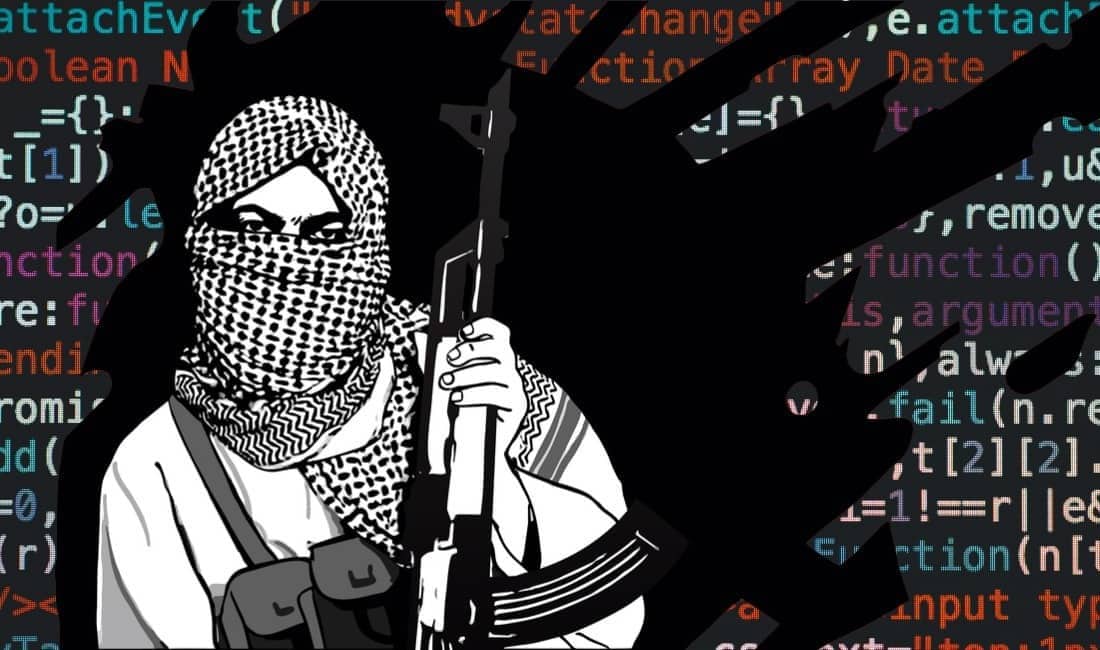Since the “War on Terror,” it’s harder than ever for terrorist groups to fund their operations. That’s why al-Qaeda and other terrorist organizations turned to cryptocurrency, a more anonymous alternative to government-backed currencies. But today, Congress learned that cryptocurrency and terrorism don’t mix as well as you might think. Here’s why terrorist groups don’t use crypto.
Crypto: A New Way to Finance Terrorism?
Cryptocurrencies have long been linked to the black market. In fact, bitcoin surged in popularity when the Silk Road, the world’s notorious online black market for guns, drugs, and pornography, started accepting it. Other cryptocurrencies like monero, which automatically secures the identities of its users and the amounts they transfer, are increasingly popular in legally grey marketplaces.
Crypto for terrorism is no exception. Theoretically, terrorists can benefit from new levels of anonymity provided by cryptocurrency. Additionally, you can instantly transfer funds anywhere in the world thanks to blockchain technology. This means that an American can easily fund a terrorist group in Afghanistan like al-Qaeda.
As authorities clamp down on terrorism, receiving donations has become increasingly difficult for terrorist groups. Today, it’s harder than ever for terrorists to use the international financial system. This is all due to the U.S Treasury Department and the International Monetary Fund’s counter-terrorism efforts.
And relying on resources is uncertain. Most of ISIS’ funds come from oil sales and extortion. But this means that their funds are entirely reliant on the land they control. Today, ISIS only has a shadow of the territory and oil they controlled in 2014. This cuts into the terrorist group’s income streams.
By contrast, cryptocurrency doesn’t rely on territory or big financial institutions.
Terrorists Attempt To Fundraise With Crypto

As the “War on Terror” persisted and cryptocurrency adoption grew, terrorist groups started fundraising with crypto. As early as 2014, a teenager from Virginia admitted to subsidizing the Islamic State with bitcoin. The 17-year-old became an icon for terrorist fundraising through social media and cryptocurrency, according to the Department of Justice.
Additionally, terrorists located in the Middle East laundered bitcoin to Indonesian terror groups in early 2017. Not only is cryptocurrency an effective way to solicit donations, but it also gives terrorist groups the ability to support one another across the globe.
Why Terrorist Groups Don’t Use Crypto
Today, the House of Financial Services Committee heard from the Foundation for Defense of Democracies Center on Sanctions and Illicit Finance regarding cryptocurrency and terrorism. They found that terrorists have attempted to fundraise with cryptocurrency several times.
But their crypto finance campaigns didn’t work. A Sunni insurgent group called Mujahideen Shura Council only received $500 from their 2016 fundraising efforts. Other groups have been equally ineffective.
Why is crypto bad for fundraising terrorism? This is because cash is still the best, and often the only way, to buy supplies in the countries where terrorist groups are most active. In other words, the regions where terrorist groups are most active are warn-torn and remote. For instance, most of Syria’s roads, hospitals and schools, nevermind its technology infrastructure, are in ruins.
This means that no one, including the terrorist groups themselves, has dependable technology infrastructure. The people from whom they buy supplies have no way of accepting payment in cryptocurrency. In war-torn regions, crypto can’t function as currency.
Additionally, cryptocurrencies are a lot less anonymous than people originally thought. The most common cryptocurrencies’ blockchains keep a universally accessible immutable record of transactions. These transactions are also verified by miners, meaning that someone other than the two people involved can see who transferred what to whom.
In other words, it isn’t hard to figure out who is transferring cryptocurrency to terrorists. And even if they fundraised with monero, terrorist groups still wouldn’t have a way of spending their crypto, especially one less common than bitcoin.
The Future of Cryptocurrency and Terrorism

With cryptocurrency, terrorists have access to international funding and can support similar causes internationally. However, their own destruction has made it next to impossible to use crypto funds to buy goods. What use is all the crypto in the world if you don’t have a reliable internet connection?
Terrorist groups are still fundraising the way they always have: through fake charities and front businesses. By contrast, wider use of cryptocurrency would mean wider use of blockchain’s ledger. And this would make it harder, not easier, to launder money to terrorists.
And it looks like the world is moving in that direction. Even Donald Trump has views on crypto. Now, bitcoin’s transaction volume alone is higher than gold. This means more blockchain records, and more attention from regulatory bodies.

